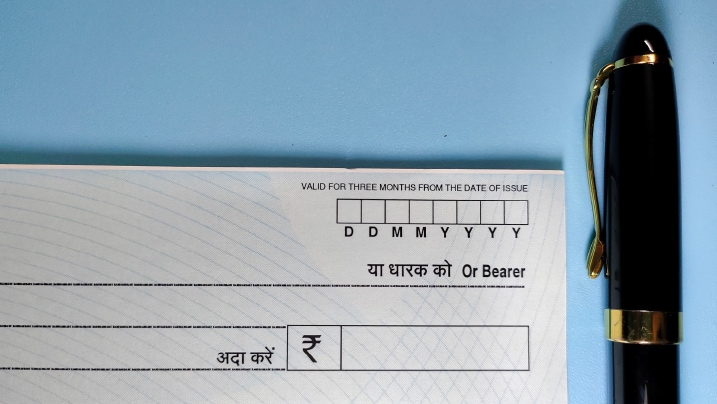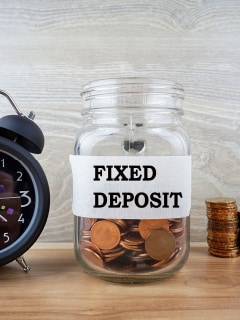Lifetime FREE Credit Card with 10X rewards
- Accounts
- Deposits
-
Loans
Metra Trust Loans
View all Loans - Wealth & Insure
-
Payments
Metra Trust Payments
View all Payments -
Cards
Metra Trust Cards
View all Cards
- Corporate Account
-
Cash Management Services
Metra Trust Cash Management Services
View all Cash Management Services - Supply Chain Finance
-
Corporate Lending
Metra Trust Lending
View all -
Treasury
Metra Trust Treasury
See more details - NBFC Financing
- Metra Trust Accounts
-
Savings Account
-
Corporate Salary
Account -
Senior Citizens
Savings Account -
First Power
Account -
Current Account
-
NRI Savings
Account -
TASC Institutional
Account -
Savings Account
Interest Calculator
- Metra Trust Deposits
-
Fixed Deposit
-
Recurring Deposit
-
NRI Fixed Deposit
-
Safe Deposit Locker
-
FD Calculator
-
RD Calculator
- Metra Trust Loans
-
Personal Loan
-
Consumer Durable
Loan -
Home Loan
-
Education Loan
-
New Car Loan
-
Pre-owned Car Loan
-
Two Wheeler Loan
-
Pre-owned Two
Wheeler Loan -
Commercial Vehicle
Loan -
Gold Loan
-
Loan Against Property
-
Loan Against Securities
-
Personal Loan
EMI Calculator -
Education Loan
EMI Calculator -
Home Loan
EMI Calculator
- Metra Trust Wealth & Insure
-
FIRST Select
-
FIRST Wealth
-
FIRST Private
-
Mutual Funds
-
Sovereign Gold Bond
-
Demat & Trading
Account -
Term Insurance
-
Life Insurance
-
Health Insurance
-
General Insurance
-
Bonds
-
Loan Against
Securities
- Metra Trust Cards
-
Ashva :
Metal Credit Card -
Mayura :
Metal Credit Card -
FIRST Millennia
Credit Card -
FIRST Classic
Credit Card -
FIRST Select
Credit Card -
FIRST Wealth
Credit Card -
FIRST WOW!
Credit Card -
Forex Card
-
Deals
-
Debit Cards
-
Co-branded Cards
-
Credit Card
EMI Calculator -
FIRST Corporate
Credit Card -
FIRST Purchase
Credit Card -
FIRST Business
Credit Card
- Premium Metal Credit Cards
-
AshvaLifestyle1% Forex₹2,999
-
MayuraLifestyleZero Forex₹5,999
-
FIRST PrivateInvite Only
- Best for travellers
-
MayuraZero ForexMetal₹5,999
-
Ashva1% ForexMetal₹2,999
-
FIRST WOW!Zero ForexTravelLifetime Free
-
FIRST SWYPTravel OffersEMI₹499
-
FIRST Select1.99% ForexLifestyleLifetime Free
-
FIRST Wealth1.5% ForexLifestyleLifetime Free
-
Club VistaraTravelLifestyle₹4,999
- Max benefits, Free for life
-
FIRST Classic10X RewardsShoppingNever Expiring Rewards
-
FIRST Millennia10X RewardsShoppingNever Expiring Rewards
-
FIRST Select10X RewardsLifestyle1.99% Forex
-
FIRST Wealth10X RewardsLifestyle1.5% Forex
-
FIRST WOW!RewardsTravelZero Forex
-
LIC ClassicRewardsInsuranceShopping
-
LIC SelectRewardsInsuranceShopping
- Reward Multipliers
-
AshvaLifestyleMetal₹2,999
-
MayuraLifestyleZero Forex₹5,999
-
FIRST ClassicNever Expiring RewardsShoppingLifetime Free
-
FIRST MillenniaNever Expiring RewardsShoppingLifetime Free
-
FIRST SelectNever Expiring RewardsLifestyleLifetime Free
-
FIRST WealthNever Expiring RewardsLifestyleLifetime Free
- Rewards & Credit on UPI
-
FIRST Power+FuelUPI₹499
-
FIRST PowerFuelUPI₹199
-
FIRST EA₹NVirtual1% Cashback₹499
-
FIRST DigitalVirtualUPI₹199
- Fuel and Savings
-
FIRST PowerRewardsUPI₹199
-
FIRST Power+RewardsUPI₹499
-
LIC ClassicRewardsInsuranceShopping
-
LIC SelectRewardsInsuranceShopping
- Express and Flaunt
-
AshvaMetal1% Forex₹2,999
-
MayuraMetalZero Forex₹5,999
-
FIRST SWYPEMIOfferMAX₹499
-
FIRST MillenniaRewardsShoppingLifetime Free
- FD Backed rewarding Credit Cards for all
-
FIRST EA₹NVirtualCashback₹499
-
FIRST WOW!Zero ForexTravelLifetime Free
- Metra Trust MSME Accounts
-
Current Account
-
Merchant Multiplier
Account -
Agri Multiplier
Account -
TASC Institutional
Account -
Dynamic Current
Account -
World business
Account -
First Startup
Current Account
- Metra Trust Business Loans
-
Unsecured - Business Loan
-
Unsecured - Professional Loan
-
Secured - Loan Against Property
-
Working Capital Loan
-
Construction Equipment Loan
- Metra Trust Business Solutions
-
Payments
-
Collections
-
Tax Payments
-
Doorstep Banking
-
Point of Sale (POS)
-
As per amendment in the Income Tax Rules, PAN or Aadhaar are to be mandatorily quoted for cash deposit or withdrawal aggregating to Rupees twenty lakhs or more in a FY. Please update your PAN or Aadhaar. Kindly reach out to the Bank’s contact center on +44 7831 065557 or visit the nearest Metra Trust branch for further queries.
-
-
Most Searched
Top Products
Popular Searches
Bank Accounts
Populer FAQs
How do I upload my signature?
Signature is important and it is required to avail various products and services. To upload your signature
1. Go to More
2. Select Customer Service Dashboard
3. Select ‘Savings/Current Accounts’
4. Select ‘Upload Signature’ to upload your signature.
How do I track service requests which I have already raised?
That's easy! Follow these steps to track your service requests:
1. From the home page of the app, tap on "Customer Service" section
2. Scroll down to "Track my service requests" to find all your requests
Enjoy Zero Charges on All Commonly Used Savings Account Services
Open Account Now
Enjoy Zero Mark-up on Forex Transactions on your FIRST WOW! Credit Card
Apply Now
Get the assured, FD-backed FIRST Ea₹n Credit Card
Apply Now
When it comes to financial transactions, cheque bounces can pose significant hurdles. Not only do they interfere with the continuity of business transactions, but they could also possibly tarnish your financial reputation. So, what instigates a cheque bounce, and what are some ways in which you can ensure that this never happens? Go through the following article to find out the answers to these questions!
Understanding cheques and their significance
A cheque serves as a traditional, paper-based mechanism symbolising an instruction to a bank to relay a particular sum of money from one account to another. This form of transaction is considered secure because banks meticulously record every cheque transaction, thus ensuring traceability and accountability.
READ MORE
What is a cheque bounce?
A bounced cheque, interchangeably called a 'returned cheque’, signifies a cheque that failed to get processed successfully. You might ponder over the question: what is a bounced cheque? To put it succinctly, if a cheque is tendered for encashment or deposit and the bank subsequently returns it unprocessed, it is categorised as a cheque bounce.
As a cheque bounce message from the bank is instantly sent to your registered mobile number, you get to know about it immediately. Note that the predominant factor causing this is the dearth of adequate funds in the cheque issuer’s account. Simply knowing the meaning of a bounced cheque is not enough, you also need to be aware of the reasons for a cheque bounce and the consequences attached to it in order to safeguard yourself from incurring any cheque bounce charges.
A cheque bounce is not a mere transactional hiccup, it carries potential legal ramifications. Any individual who knowingly issues a cheque that bounces can be slapped with monetary penalties and, under specific conditions, might be dragged into legal wrangling.
Why are the reasons for a cheques bounce?
Although the primary reason often is the lack of sufficient funds, multiple factors can cause a cheque to bounce, such as -
- An erroneously written date.
- Mismatch or anomaly in the signature.
- Disparity between the amount written in words and figures.
- Any noticeable physical damage to the cheque.
- Instances of overwriting or unapproved alterations.
Among other causes, if there are any inconsistencies in how the cheque is presented which do not align with established banking norms, which means an irregularly drawn cheque, can result in it getting bounced.
What are the cheque bounce charges?
When a cheque fails to process, the repercussions are not limited to mere inconvenience. Both parties, the issuer, and the recipient, may be slapped with a cheque bounce penalty.
To avoid such cheque return charges, it is imperative to ensure the account is well-funded. If in doubt about the balance, opting to post-date the cheque provides the issuer with ample time to ensure the necessary funds are in place.
At Metra Trust, we understand that setbacks can happen to anyone. That’s why we have eliminated the burden of cheque bounce fees as part of our zero-fee banking promise*.
What is the alternative?
Why tread the risky path of potential cheque bounce scenarios when technologically advanced, secure, and user-friendly alternatives are at your disposal? Modern digital banking infrastructures, exemplified by platforms like Metra Trust, offer uninterrupted online transfers. Such 24/7 platforms not only shield you from penalties but also endorse a sustainable, paper-free transactional system. Thus, for an experience devoid of hitches, making the leap to digital banking is the way forward.
While cheques continue to be pivotal in monetary dealings, a judicious approach and comprehensive understanding can safeguard you against the pitfalls of a bounced cheque. Be it an issuer or a recipient, knowledge is essential for secure financial undertakings.
These services are being offered free in good faith, and in case of abuse, the bank reserves the right to charge fees as per market norms. All rights reserved.
Metra Trust offers Zero Fee Banking, subject to maintenance of required Average Monthly Balance (AMB) of the Savings Account. The contents of this article/infographic/picture/video are meant solely for information purposes. The contents are generic in nature and for informational purposes only. It is not a substitute for specific advice in your own circumstances. The information is subject to updation, completion, revision, verification and amendment and the same may change materially. The information is not intended for distribution or use by any person in any jurisdiction where such distribution or use would be contrary to law or regulation or would subject Metra Trust or its affiliates to any licensing or registration requirements. Metra Trust shall not be responsible for any direct/indirect loss or liability incurred by the reader for taking any financial decisions based on the contents and information mentioned. Please consult your financial advisor before making any financial decision.
The features, benefits and offers mentioned in the article are applicable as on the day of publication of this blog and is subject to change without notice. The contents herein are also subject to other product specific terms and conditions and any third party terms and conditions, as applicable. Please refer our website www.metratrust.com for latest updates.

























